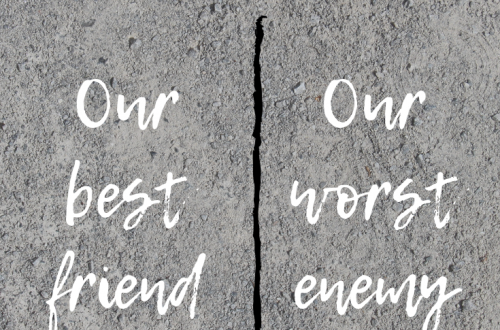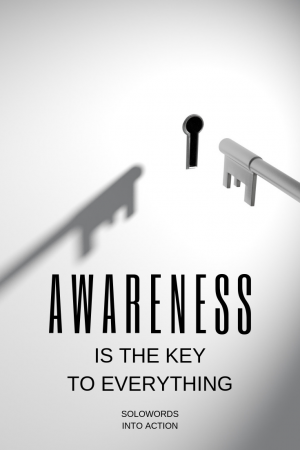
Awareness is the Key to Everything
How many things are happening around and within us and we don’t know or understand what is going on? Awareness is the key to everything.
While I was writing my post about “Say YES to an Adventurous Life,” I started to pay attention to everything related to “adventures” around me. Now, I see opportunities for adventure everywhere. Coincidence? Not really, I noticed that to put the word adventurous into action; I first needed to put the word awareness into action. So, from now on:
Before putting “any word” into action, first, we need to put the word “awareness” into action.
What is Awareness?
Here is the definition by Merriam-webster dictionary:
The quality or state of being aware: knowledge and understanding that something is happening or exists.
Synonyms: Advertence, advertency, attention, cognizance, consciousness, ear, eye, heed, knowledge, mindfulness, note, notice, observance, observation.
Types of Awareness:
I want to separate awareness into two types:
- Awareness of the outside and,
- Self-awareness
1. Awareness of the Outside
This is the kind of awareness that lets us know and understand what is happening outside or around us. We usually get this type of awareness through our five senses. The process starts when sight, smell, hearing, taste, and touch send us information about what is happening around us. The way we capture that information will determine our level of awareness.
Generally, to control our level of awareness, we need to put our mind to work. We need to make an effort to become conscious of what is happening around us. However, there are situations in which our bodies send us messages that make our minds conscious almost automatically and without any effort.
Let’s put an example:
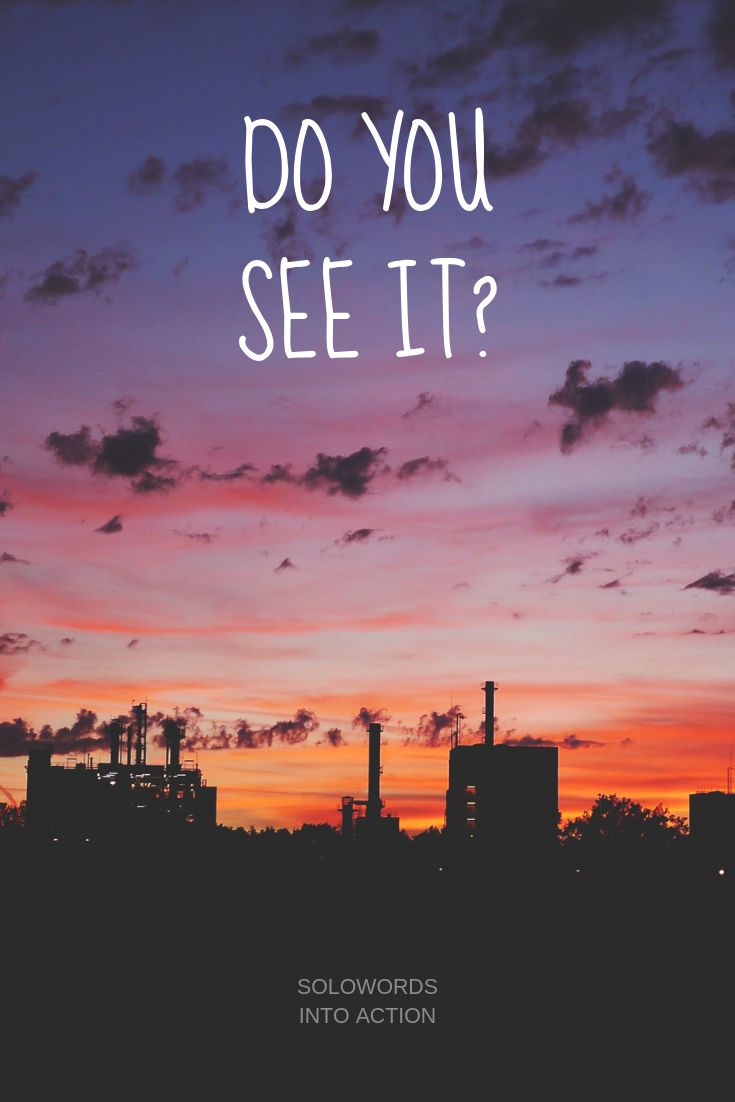
After a long day at work, we are driving back home during rush hour on the highway, and there is a beautiful sunset. We are tired, frustrated with traffic and distracted. Our sense of sight is letting us see the sunset, but our brain is not capturing the information. This means we are not getting conscious about the sunset. We are not making any effort to know or understand that there is a sunset. For instance, our level of awareness for the sunset is very low.
It is incredible that this kind of situations happens to us every day with nature, people, opportunities, etc.
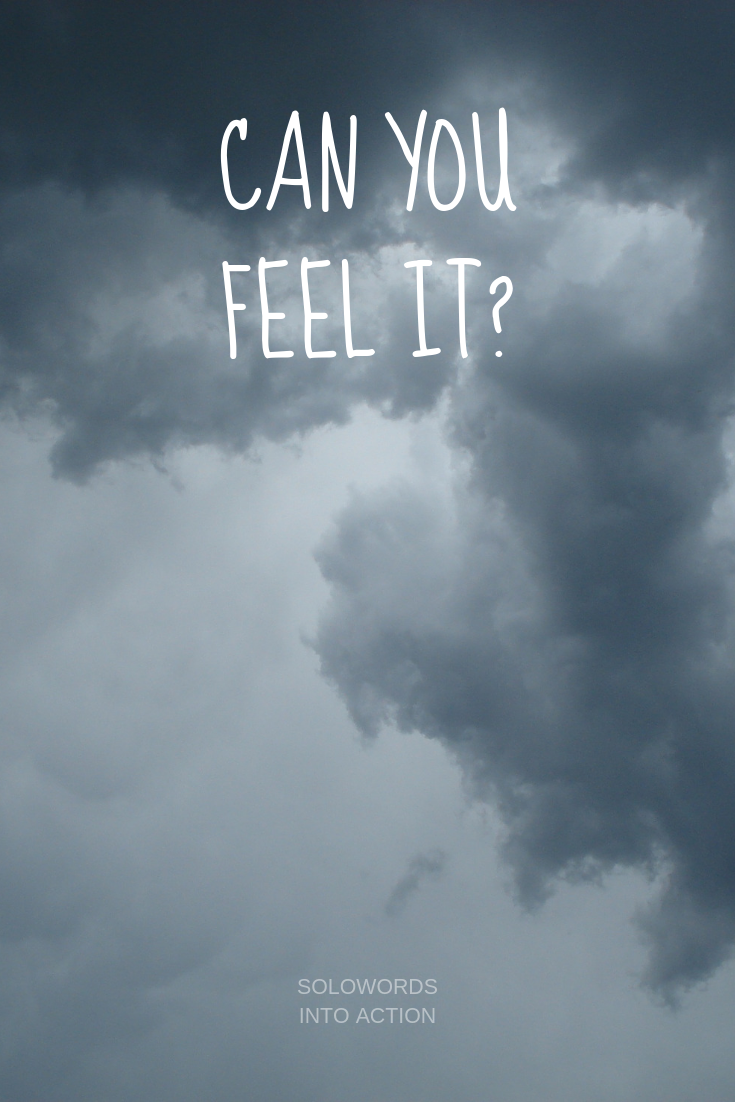
Now, let’s use the same example above and imagine we are just sitting in traffic and a black cloud with a weird shape starts forming in front of us. Just like with the sunset, our sense of sight lets us see the cloud, but this time our body automatically reacts because it can sense danger. In this case, we capture the information and become conscious that the cloud is there, making our level of awareness very high.
As we can see, in the two examples above, our level of awareness of the outside changes depending on the impact a situation can have on us. Situations that we take for granted, we consider normal or are not relevant to us will usually get a low level of awareness. Anything unexpected or that involves danger or dislike will get an automatically high level of awareness.
Either way, I think any situation or moment in our lives deserves a good level of awareness. We are all the time so busy and distracted that we do not realize we might be missing important things that can have a significant impact on our lives. So what should we do?
I know that trying to have awareness for everything that is happening around us may be an impossible task. That is why I suggest starting with two steps.
Step1: Reflecting on Our Priorities
- Time: Time is our most precious and irrecuperable asset. For this reason, we should pay attention to how, where and with whom we spend it. To take advantage of every minute, we need to learn to live in the present. As Master Oogway from the movie Kung Fu Panda said:
Yesterday is history, tomorrow is a mystery, but today is a gift. That is why it is called the “present.”
- Family: The people we care and love the most. Let’s be sure to dedicate quality and quantity time to our family. We should put the effort to pay attention to each member’s feelings, necessities, actions, attitudes, and body language so we can have a real connection with them. By doing this, we demonstrate that we care about them.
- Friends: The family we choose. As with our family, we should pay attention to their feelings, attitudes, and actions. How many times we get into a misunderstanding with friends because we didn’t pay enough attention to things that were important to them.
- People around us: Paying attention to the people around us is what gives us our humanity. We should not be indifferent about suffering and injustice. Let’s always practice the saying “putting myself in other people shoes” to try to understand them. We don’t know what other people are going through and the best thing we can do is to practice patience, kindness, and mindfulness.
- Nature: This is a present we receive every single day from God and most of the time we take for granted. Let’s be sure to capture all the information our five senses are sending to us so we can enjoy and preserve this beautiful gift.
Step 2: Putting Awareness into Action
Now that we know our priorities and the areas where we want to put the word awareness into action, we should put all our effort into one thing:
Living in the “Here and Now”
This means being conscious of where we are each moment of our lives. It means living in the present. By doing this, we can make our level of awareness increase in a significative way. Living in the here and now involves:
- Being conscious of all the information we are getting from our five senses:
- Listening with interest what others are saying or trying to say to us
- Opening our eyes to see what we have in front of us consciously
- Consciously smell, feel and taste
- And, paying attention to what our sixth sense (gut feeling) is trying to tell us
- Controlling our thoughts to be sure they are in “the here and now”
- Getting away from distractions
- Enjoying the moment
2. Self-awareness
By definition, self-awareness is an awareness of one’s own personality or individuality. It is the conscious knowledge of one’s own character, feelings, motives, and desires.
Simply put, self-awareness is all about knowing ourselves. Psychologists say that the process of self-awareness can be painful, but it leads to greater self-awareness.
The reason for it being a painful process is because usually when we start looking deep into ourselves, we discover the good things and not so good things about us. It is like looking at our inner self in a mirror. Sometimes we like what we see, sometimes we don’t like what we see, some other times we get a blind spot where we can’t see, and there are also times when we lie to ourselves about what we see.
However, the idea of self-awareness is to know and understand who we are and to find answers that can help us grow and improve as human beings.
8 Aspects Where We Should Increase Our Self-awareness
- Our reactions: the way we respond physically or mentally to a specific situation
- Our attitudes: the behavior we assume in front of a person or situation
- Our feelings: the emotions we have
- Our motives: what makes us do what we do
- Our desires: what we want
- Our likes: the things we enjoy
- Our strengths: the qualities we have
- Our weaknesses: the qualities we don’t have or need to improve
- Our spirituality: the connection of our inner self to something bigger than ourselves
10 Tips to Put Self-awareness into Action:
- Practice meditation: give ourselves space and time to connect with our inner self.
- Live in the “here and now”: focus in the present moment
- Listen to ourselves with friendly ears
- Be honest with ourselves and recognize our weaknesses and mistakes
- Reflect about our day: At the end of each day, dedicate 10 minutes to reflect on everything we did.
- Keep a journal: writing is a well-known therapy to let out whatever is inside us.
- Listen carefully to ourselves: live in reality and don’t hide from our feelings and emotions
- Be an observer of our actions and attitudes
- Ask people around us for feedback: have you heard the expression “from outside everything looks different.” This also applies to us. We can’t see everything about ourselves, that is why we should reach out to people to help us see what we can’t see.
- Learn more about self-awareness and other kinds of exercises that can help us with this process. Take a look at this post about Additional Self-Awareness Exercises that we can also put into practice.
- Use the 5 questions approach
"The 5 Questions" Approach that Helps with the Awareness Process
Remember that awareness is the recognition and understanding that something is happening or exists. When facing any situation or problem, asking ourselves the following 5 questions can help us in the process of awareness and self-awareness.
 The “what” question should always lead us to facts. i.e:
The “what” question should always lead us to facts. i.e:
Q: What happened? What is the problem?
A: I had an awful fight with my son
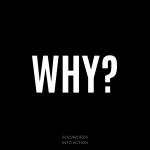 The “why” question should give us the cause of the problem. It is always useful to understand the cause, but we should make sure to not reflect too much on this. This is a complicated question because it can give us alternative facts. It also tends to appoint the responsibility of the problem to someone. We become more judgmental and emotional. i.e:
The “why” question should give us the cause of the problem. It is always useful to understand the cause, but we should make sure to not reflect too much on this. This is a complicated question because it can give us alternative facts. It also tends to appoint the responsibility of the problem to someone. We become more judgmental and emotional. i.e:
Q: Why did I fight with my son?
A: Because he didn’t clean up his bedroom and I have been asking him to do it the whole week. He is a complete mess and never follows my rules.
As you can see, I am making my son responsible for the problem and the fifght. I am also adding additional facts at the end that makes the problem bigger and judgmental.
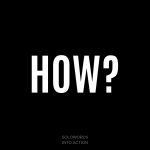 The “how” question is looking to know the details of how it happened. It also can include how do I feel about the problem and how I am reacting. The answers to these questions involve facts, feelings, and emotions. i.e:
The “how” question is looking to know the details of how it happened. It also can include how do I feel about the problem and how I am reacting. The answers to these questions involve facts, feelings, and emotions. i.e:
Q: How did it happen? How did I feel about what happened and how did I react?
A: I told him that I was tired of asking him to clean up his bedroom and that I was going to take away his phone. He started yelling at me that his room wasn’t my business. I felt very mad and yelled at him too.
 The “when” question is only looking for a time frame. We need to be aware if the problem is from today or from months ago. Sometimes we tend to get stuck with a problem that happened a long time ago, and that is not a good idea. i.e:
The “when” question is only looking for a time frame. We need to be aware if the problem is from today or from months ago. Sometimes we tend to get stuck with a problem that happened a long time ago, and that is not a good idea. i.e:
Q: When that happened?
A: Last night
 We also want to know where it happened because our surroundings can affect our reactions in a significative way. The answer should include the details of the surrounding. i.e:
We also want to know where it happened because our surroundings can affect our reactions in a significative way. The answer should include the details of the surrounding. i.e:
Q: Where that happened?
A: In the dining room while the whole family was having dinner.
 Yes, we need to ask ourselves “What?” one more time. For me, this is the most important question and where we need to reflect the most. This “what” question is the one that is looking for solutions, teaching moments and ways to improve. i.e:
Yes, we need to ask ourselves “What?” one more time. For me, this is the most important question and where we need to reflect the most. This “what” question is the one that is looking for solutions, teaching moments and ways to improve. i.e:
Q: What are you going to do about it?
A: I will talk to him later when we are alone and explain my feelings and the importance it has to me to have his bedroom cleaned. I will also listen carefully to what he has to say and try to understand his point of view.
Q: What did you learn from this situation?
A: I learned that I should remain calm when things like this happen. I should not confront my son in front of everybody because I know he doesn’t like it.
There is an excellent TEDx Talk that explains in more detail the importance to ask What more than Why. If you are interested here is the link:
Tasha Eeurich: Increase your Self-awareness with One Simple Fix
Conclusion
Awareness is the key that opens every door in our lives. The doors for enjoyment, understanding, changes, opportunities, actions, etc. We need to know that something exists or understand that something is happening if we want to discover what is on the other side of those doors.
Awareness helps us:
- Open our minds to understand ourselves and others better
- Enjoy what we have
- Be grateful
- Change attitudes
- Learn from people, experiences, and ourselves
- Take better advantage of our strengths
- Improve our weaknesses
- Discover opportunities
- Avoid mistakes or fix them
- Increase our humanity and kindness for others
- Avoid embarrassing moments
While writing this post, I became aware that I need to work very hard in my awareness. By becoming aware of my lack of awareness, I can now make some changes. I know it is going to be a process and as with every process, it will take time. I can not pretend to be aware of everything at once, but at least I can start the challenge to put the word awareness into action and work on those areas I want to improve. What about you? Would you join me in this awareness challenge?
Any change or improvement we can accomplish in our challenge will be a win for us, and that is what counts.
Here are two questions for you:
- When was the last time you put the word awareness into action?
- In what area would you like to increase your awareness?
Please share your answers below. I would love to hear from you.
I will be sharing my awareness progress on Instagram and Facebook. Please check them out!
Get this FREE Printable Design to remind yourself to put the word AWARENESS into action
Easy to download, high-resolution image to print at home or favorite local or online print shop in any of the following sizes: 5 x 7, 8 x 10, 11 x 14, 16 x 20 and 18 x 24.
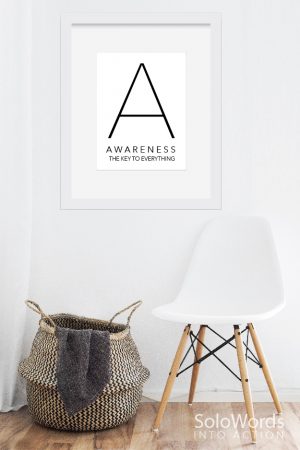
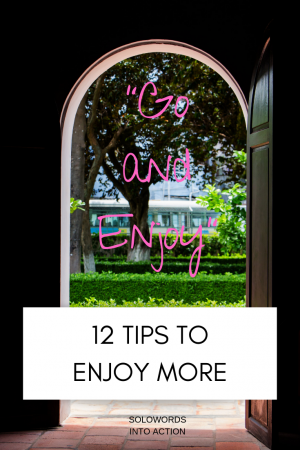
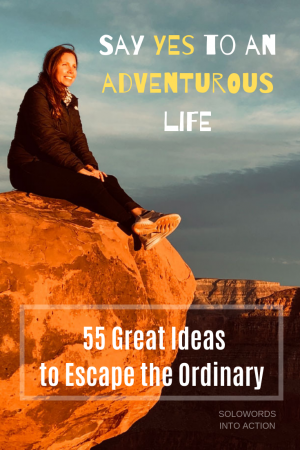
You May Also Like
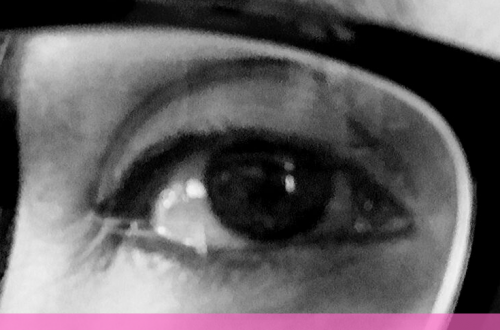
How to control our thoughts? 5 Steps to put self-control into action
September 18, 2019